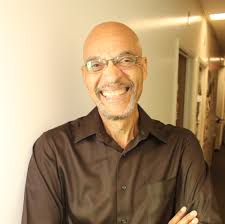Miriam
Carey's sisters screamed loudly that their sister did not have to die in the
hail of gunfire from D.C. police. They did not say or even hint that race had
anything to do with the young black woman's slaying in her alleged attack on
the White House. The blizzard of oft times conflicting reports on how and why
she was killed has left plenty of room for much speculation and serious doubt
over whether Carey really was a dangerous suspect who had to be gunned down
because of her reckless vehicular careening at the White House and through city
streets, or because she was allegedly so depressed, or whacked out on meds.
There
are three indisputable facts that raise the doubt level about the way she died
and equally why she had to die. And with both, race can't be scrapped as a
factor. The threat level is one. Carey did hit a barrier near the White House
and she did panic and flee in the process posing an apparent danger to other motorists
and officers. This tagged her as a
legitimate suspect for apprehension and arrest. But this action hardly rose to
the serious threat level of a possible mjor terrorist attack on the White
House. There was no gun fire from her vehicle or any hint before or during the
chase of the threat of gun play, or the use of any other weapon, other than her
car. Another fact is that there have been multiple attacks on or near the White
House over the years. They have included treats to blow up the White House,
actual shots at the White House, the brandishing of a gun near the White House
and an actual crash through the White House gates. None of these have resulted
in the slaying of the suspects even though each case involved an actual violent
act, and in a couple of the cases guns.
Then
there was the actual gunning down of Carey. By the time that her car was
stopped, boxed in by police, and surrounded by a phalanx of pistol pointing
officers with a dead bead on the car and her, the officers could clearly see
that Carey was the lone occupant, and that she was emerging from the car with
no weapon. It didn't matter. The shooting at her continued with no indication
that the officers gave any command too surrender. The wild theories to explain
the barrage of deadly force against her was that she might have been a possible
terrorist, a suicide bomber, or so deranged that she could not be captured
alive won't wash since there's no confirmation that she wasn't given ample
opportunity to surrender after she was effectively contained.
This
leaves the final question about what if any role race played in her slaying.
There's the horrid history of racial stereotyping, profiling if you will, that
indelibly link crime and violence with African-Americans. This linkage isn't
just confined to black men. There's the feminization of racial stereotyping too.
While black men are frequently typed as violent, drug dealing
"gangstas," black women are typed as sexually loose, conniving, and
untrustworthy. In effect, many believe that black women offenders are menaces
to society too. Much of the public and many in law enforcement are deeply
rapped in the damaging cycle of myths, misconceptions and crime fear hysteria
about crime-on-the-loose women.
This has
cost lives. In the past few years, the number of black women that have been
slain by police in several cities has at times drawn headlines and protests. This
is separate from the endless tales of black women who have been beaten, tasered
and threatened during routine stops or street searches by police officers often
with no charges filed against them, or whatever charges were filed were soon
dismissed.
The black
women, though, that have been killed by police have all had one thing in
common. They were unarmed, and in nearly all the cases were not committing a
crime. They also had one other thing in common. In each case, there were
endless and predictable efforts to dig up any and every bit of damaging
information about their history or lifestyle to in effect virtually blame them
for their own unjustified killing. The fast emerging disturbing underlying
public narrative about Carey is that her slaying was more than justified not
solely because of her alleged reckless acts, but because of her alleged past--meds,
disoriented, delusional, paranoid, and so on in the endless speculative
depiction about her and her actions.
Carey's
sisters were the model of diplomacy in expressing their anguish over the
slaying of their sister. They did not accuse the D.C. police of murder, nor
suggest there was a racial motive in their deadly overreaction. But both questions were left disturbingly
dangling. It's now up to D.C. police officials to give an honest, an accurate
account of what and why they did what they did, and more importantly, if they
really had to slay Carey.
Earl Ofari Hutchinson is an author and political analyst. He
is a frequent MSNBC contributor. He is an associate editor of New America
Media. He is a weekly co-host of the Al Sharpton Show on American Urban Radio
Network. He is the host of the weekly Hutchinson Report on KTYM 1460 AM Radio
Los Angeles and KPFK-Radio and the Pacifica Network. Follow Earl Ofari
Hutchinson on Twitter: http://twitter.com/earlhutchinson




